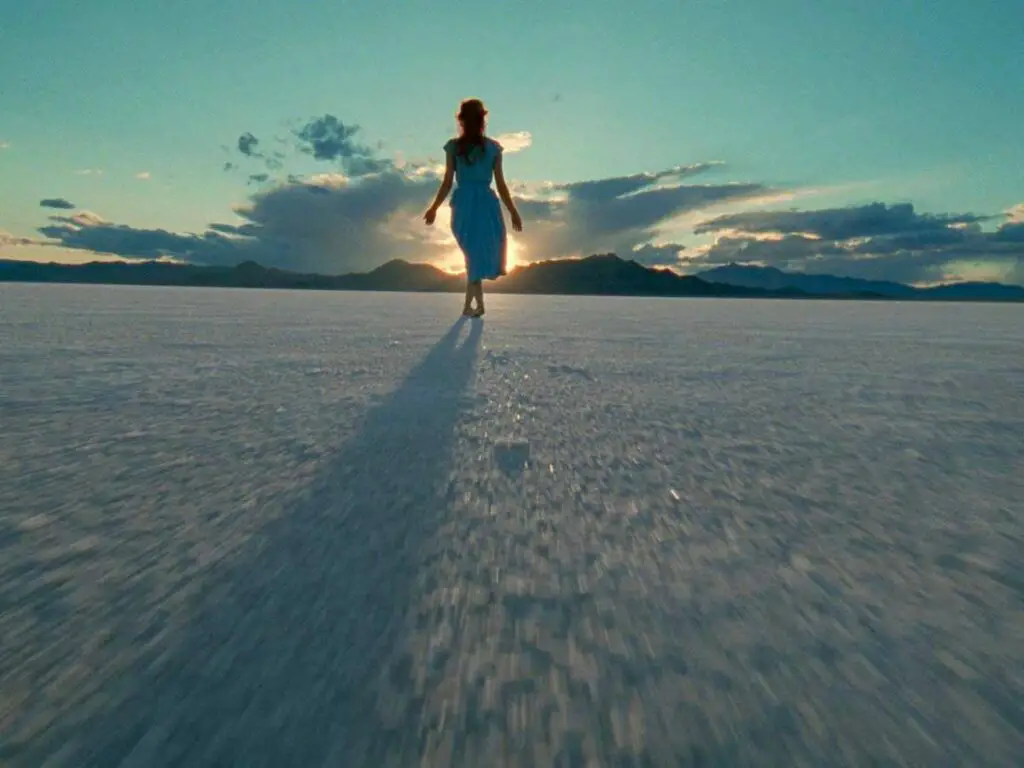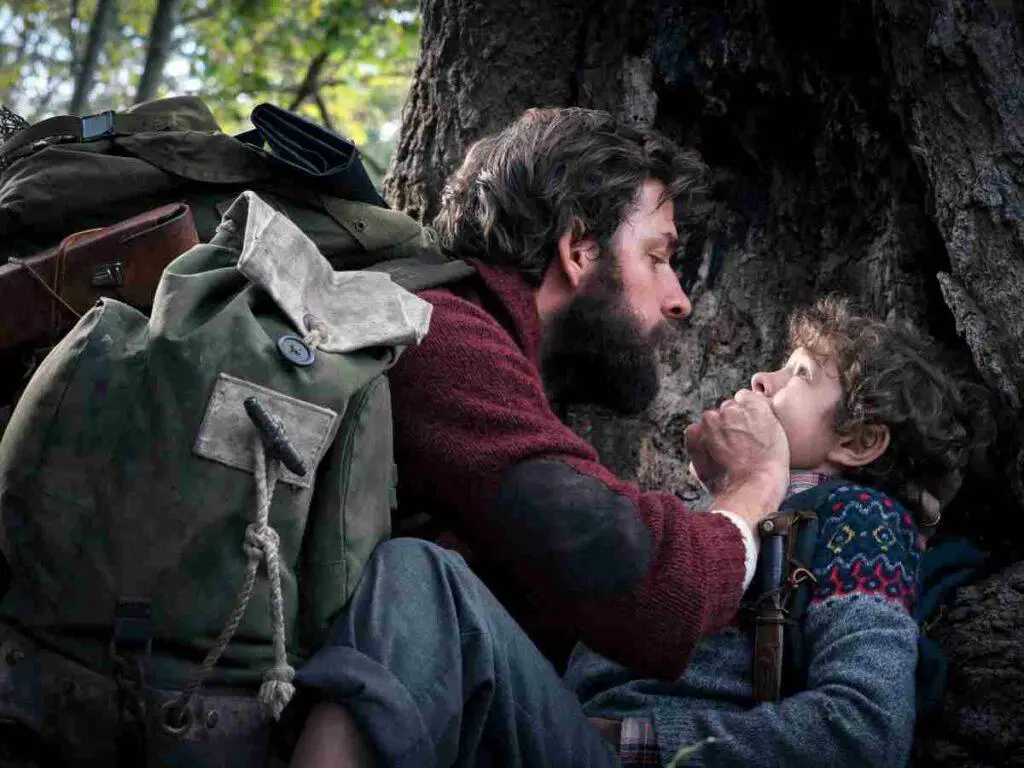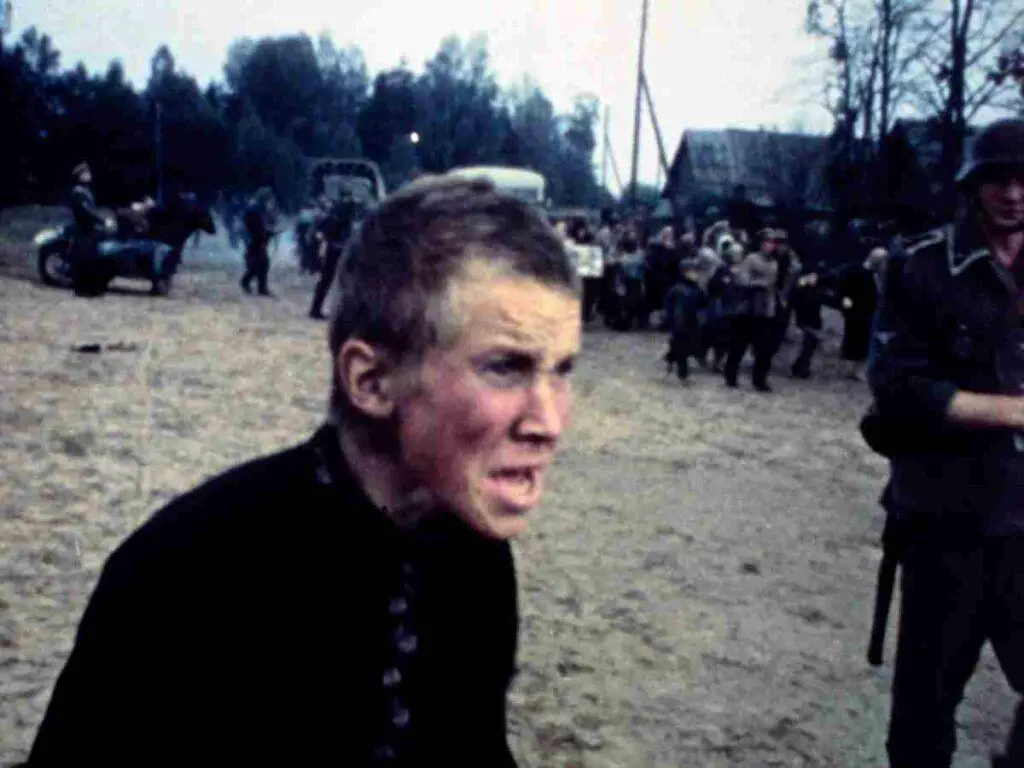From Knight of Cups (2015) to The Tree of Life (2011), here’s ranking the best Terrence Malick movies.
A luminary visual poet, Terrence Malick is an auteur in the truest sense of the word. Some call him the spiritual heir to the legendary Russian filmmaker Andrei Tarkovsky, largely for his evocative visuals and deeply philosophical outlook on life. In his five-decade career as a filmmaker, Terrence Malick has made nine feature films and a documentary, receiving several international awards including the Palme d’Or and the Golden Bear.
An enigmatic auteur, Malick is an intensely private person who’s repeatedly refused interviews. He was born in 1943 in Illinois. His father worked as an executive in a petroleum company, and mother was a homemaker. Malick focused on arts from a young age. He was a member of the drama club and often listened to classical music recordings. Malick studied philosophy in Harvard, where he specialized in Martin Heidegger. In fact, the German philosopher’s work continues to have a strong influence in his films. He worked as a journalist and a teacher for some time before making films.
In Hollywood, Malick studied at American Film Institute (AFI). His ascent in Hollywood was quick. He worked on the script of an early version of Dirty Harry (1971) and later wrote a script of Paul Newman starrer Pocket Money (1972). The Hollywood studio system changed a lot before Terrence Malick arrived at the scene. Hence he made his first feature Badlands (1973) with complete freedom. The film received critical acclaim which led to the next project, Days of Heaven (1978).
Terrence Malick is a stern taskmaster. His unorthodox approach to filmmaking often put him at odds with his crew. Though Days of Heaven picked up an Oscar for cinematography, and is now widely recognized as a masterpiece, the grueling experience of making it led to his two decade-hiatus from filmmaking. During the time, Malick was labeled as the ‘cinematic Salinger’. Yet to everyone’s surprise he came back strong in 1998 with the powerful anti-war drama The Thin Red Line. From then on, despite occasional missteps, Malick has been making his own brand of ethereal cinema and dazzling movie lovers across the globe.
Here’s ranking all the American auteur’s works, from good to the best:
10. Song to Song (2017)

Song to Song is the film that made me wish Malick would take a break from his free-form storytelling. Similar to To the Wonder (2012) and Knight of Cups (2015), Song to Song is yet again a relationship drama that doesn’t focus much on the narrative flow. It’s because Malick isn’t interested in telling a story. His interest lies in capturing the fleeting sensations of love and happiness.
Bolstered by Emmanuel Lubezki’s cinematography, the narrative is replete with ethereal, dreamlike visuals. The filmmaker fascinatingly visualizes some very high concepts like death and vulnerability. However, you can only savor Song to Song if you’re patient and open-minded. Keep aside all expectations and be ready to submit to the plight of knowing that all cannot be known and you’ll be able to appreciate it. Yet, if you hated the film, it’s understandable; love can sometimes be a rather dull subject.
9. Voyage of Time (2016)

Voyage of Time is a documentary that focuses on the history of the natural world. The movie dives headfirst into nature and unlike Malick’s other works, stays there indefinitely. Some critics called it a foot-note of Malick’s Tree of Life, and the documentary is accompanied by the voice-over of that film’s star Brad Pitt. This was a dream project for Malick, and in the documentary medium he has found all the freedom to discuss his interests at length. But there is something very uncanny about this documentary. Most who have seen it have come out divided regarding its core essence.
Some view it as a humbling experience, almost akin to the artwork of the romantics. It showed them the insignificance of the puny man in contrast to the grand scheme of the natural world, of which they themselves are a part.
Others viewed it as a work steeped in solipsism. They saw Malick dictating that each being is akin to the entire cosmos. They hold the mysteries of nature within them. Naturally, this difference in perspectives is achieved only when the director allows a certain degree of freedom to the audience. And Malick achieves this connection with his viewers beautifully.
8. To The Wonder (2012)

The lack of narratives in Terrence Malick’s films has been a talking point since The Thin Red Line (1998). Malick’s distinct modus operandi is clearly to explore the spiritual experiences of humans, be it on a grim battlefield or a resplendent American landscape. With To The Wonder Malick moved further away from narrative structures. There’s a foundational narrative, but Malick fills the rest with his own style and pet themes. While, Malick’s supporters called it purest form of arthouse, and hailed it as meditative, his detractors were quick to label it ‘pretentious’.
To the Wonder focuses on Neil and Marina’s relationship, played by Ben Affleck and Olga Kurylenko respectively. The stellar cast also includes Rachel McAdams, who plays Neil’s highschool sweetheart, and Javier Bardem as a priest who counsels the unhappy Marina. Malick’s style is overblown, and yet there are undeniable moments that make it a tender-hearted study of love and its intricacies. In a roundabout way, Malick looks at the beauty and miracle of human connection.
7. Knight of Cups (2015)

Among Terrence Malick’s triptych of relationship dramas, Knight of Cups is his most audacious and emotionally transcendental work. The movie revolves around a man named Rick (Christian Bale), who is addicted to success in the Hollywood business but at the same time suffers from existential crises as he grapples with questions of identity and authenticity. “All those years, living the life of someone I didn’t even know…”, he muses.
Knight of Cups is largely about taking stock of one’s life, and exploring the possibility of starting over. While the narrative often loses itself to Rick’s intermittent musings, there’s a semblance of a narrative structure here as it’s divided into eight chapters. Each chapter tries to diagnose Rick’s relationship and other problems. The film brims with biblical symbolism and religious overtones. It is quite different from the other works of Malick as it takes a bird’s eye view of the world while attempting a back and forth between the character and the environment. It’s an engaging watch, to say the least.
6. A Hidden Life (2019)

A Hidden Life tells the story of an Austrian priest who refuses to fight under Hitler’s Fascist Nazi Regime. This story of conscientious objector marks the second time Malick has taken upon a true story, after his debut feature Badlands. As usual, Malick narrates the story with his leisurely approach and stunning vistas. At the same time, he doesn’t meander too much from the narrative base.
Each and every shot reflects the inner mechanisms of the characters’ mind. The cold touch of the zephyrs almost beckons at us and the swinging tall grass creates an illusion of our presence within that frame of imagination.
You feel the pain and conflict brewing within the heart of the protagonist. The unshakeable devotion towards justice is commendable. But the film could have been better if it had more subtle drama than plain introspection of the central character. It would’ve lent more depth to the protagonist. Nevertheless, A Hidden Life has more real purpose and meaning than his previous arty, self-indulgent works.
5. Badlands (1973)

Malick’s debut film, Badlands acts as a precursor to the greatness and experiments that have come after it. It signaled the arrival of a gifted fully-formed film artist. Through this movie Terrence Malick showed a great deal of expertise and understanding of the Hollywood film formula. Moreover, his innovative voice-over technique elevates the film to a different level.
Usually voiceovers are considered to be lazy expository tools to further the plot. But Malick uses it in a very different way. The voice-overs are the musings of the characters, their thoughts about the present. Hardly any plot is revealed through them. This ability to converse with the listener makes Malick one of the most sensitive filmmakers of his time.
Badlands is based on the real-life story of Charles Starkweather and his teenage girlfriend. The pair went on a killing spree and met with a grim ending. Malick’s approach is non-judgmental, and takes a poetic route despite the tale’s inherent ugliness.
4. The New World (2005)

Thin Red Line’s deeply introspective commentary against war was very well-received during its release. It was a dream comeback for Malick. But his next feature, The New World sort of signaled the kind of opinions his works received from then on: ranging from celebration, astonishment to mockery and outright hostility. Of course, The New World dealt with a very controversial subject: the American colonization of the native American tribes. This was a time when people were starting to address the atrocities committed by the white settlers against the native Americans.
Malick could have taken the easy road by simply showcasing the injustice done by the settlers. But he didn’t. He rather gave us an unbiased emotional account without any clear-cut authorial statement. Once again, in The New World Malick observes things rather than judge them. And the movie itself constantly overwhelms you. From the performances, spectacular editing to its grand visual scheme and meticulous sound design, The New World is a one-of-a-kind experience.
3. The Thin Red Line (1998)

The Thin Red Line is one of the best anti-war movies that doesn’t rely much on intense battlefield scenes to drive home its point. It rather takes us deeply into the minds of those who are fighting. The storytelling style is quite unconventional. The narrative doesn’t have a single protagonist, and we are left with different narrators, who share their personal experiences of the war.
The narrative largely focuses on the theme of masculinity, as it gazed at the men with a newfound sensitivity. The idea of mortality is tackled amazingly well. Imminent death is contrasted with the will to live for a loved one. In many ways, Thin Red Line is the exact opposite of Saving Private Ryan, as the viewers’ attention is taken away from the action and we are left to comprehend the banality of war against the beauty of life and nature.
Overall, it’s a magical juxtaposition of war, philosophy and spirituality that for once united people into considering it a beloved classic.
2. Days of Heaven (1978)

The second feature of Terrence Malick, Days of Heaven was a wondrous recreation of the Texan countryside. The plot resembles that of a soap opera. But Malick’s interest lies in capturing the sound and image that might usually bypass our perceptive capabilities. From the swarm of locusts to the fields swaying in the gentle breeze, Malick’s sensual imagery overrides the power of words.
Similar to Badlands, this is also a story about people on the run. However, the plotline is a little more complex than his debut feature, although a narrative strategy isn’t Malick’s greatest achievement.
As the title indicates, Days of Heaven features biblical undertones, and makes veiled references to God and evil. Malick’s voice-overs as we mentioned earlier are very unique. Though the tone of the voice reverberates with intimacy, it simultaneously facilitates a disconnection from the proceedings. It offers us a more distanced, non-judgmental look at things. There’s something close to perfection here, in terms of visual language that kind of explains why the filmmaker took a long break.
1. The Tree of Life (2011)

The Tree of Life is simply a masterpiece. Kubrick in 2001: A Space Odyssey (1968) used science-fiction as a medium to contemplate the grand design of cosmos and life. Similarly, Malick uses a semi-autobiographical tale of a man’s childhood and adulthood to extrapolate larger questions about the universe and our existence. Cinema has the power to overwhelm our senses unlike any other artistic medium. In my humble opinion, Tree of Life is a testament to that.
Initially, the film seems to be concerned with the suburban life of O’Briens in 1950s Texas. The family’s elder son, Jack O’Brien (Sean Penn) looks back at his memories. Young Jack is often caught between the destructive rage of his father (Brad Pitt) and the unconditional love of his mother played brilliantly by Jessica Chastain. However, the narrative is brilliantly fragmented as one man’s search for life’s meaning leads to eloquent digressions concerning the birth of the universe and life.
The naturalistic imagery coupled with some of the best choices in classical music render an experience that can only be defined as sublime. Overall, this non-chronological and brightly colored philosophical canvas stands as one of the most triumphant works in experimental art.
Conclusion
Terrence Malick could be seen as a torch-bearer of Tarkovsky. But parallels could be drawn between Malick and another enigmatic American auteur – Stanley Kubrick. Though both the filmmaker’s style and themes are vastly different, their obsessive devotion to craft and the unique way they worked within the Hollywood system brings them closer to each other.
Malick is currently working on a project titled The Way of the Wind. Featuring a stellar cast that includes Matthias Schoenaerts, Ben Kingsley, Mark Rylance, and Joseph Fiennes, the film is a dramatization of different episodes in the life of Christ. Let’s hope that the 78-year old auteur makes a few more movies that offer us his distinct, meditative take on nature and mankind’s relationship within this indecipherable cosmos.
How would you rank Terrence Malick’s filmography? Let us know in the comments.
(Additional writing by Arun Kumar)




